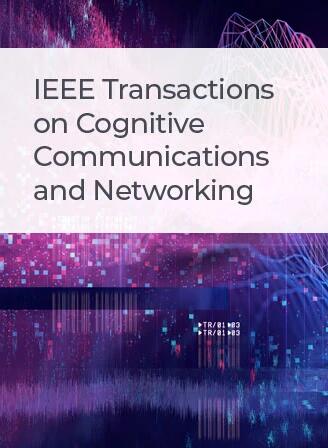文本传输的语义编码:迭代设计
IF 7.4
1区 计算机科学
Q1 TELECOMMUNICATIONS
IEEE Transactions on Cognitive Communications and Networking
Pub Date : 2022-07-20
DOI:10.1109/TCCN.2022.3192407
引用次数: 6
摘要
我们考虑了采用联合源信道编码(JSCC)的无线文本传输。传统的源编码只考虑基于概率模型的语法信息,而忽略了源消息的含义。基于神经网络的源信道联合编码器更有效地处理源语义信息。然而,现有的基于端到端神经网络的语义传输在不同信道条件下不能很好地泛化。为了解决这个问题,我们提出了一个具有迭代架构的半神经框架,称为迭代语义JSCC (IS-JSCC)。具体来说,在每次迭代中,从中间解码文本中提取剩余的语义,然后在下一次迭代中用作通道解码器的先验信息。我们不是明确地重建文本,而是在嵌入空间中综合候选词的语义,并根据它们的后验概率加权。这种软语义综合减轻了错误传播,降低了迭代译码的复杂度。结果表明,与全神经网络设计相比,该框架可以提高联合迭代解码的文本重建质量,并在无线信道上表现出更好的鲁棒性。本文章由计算机程序翻译,如有差异,请以英文原文为准。
Semantic Coding for Text Transmission: An Iterative Design
We consider the wireless text transmission using joint source-channel coding (JSCC). Classical source coding only considers the syntactic information based on probabilistic models, ignoring the meaning of source messages. Neural network based joint source and channel coders handle the source semantic information more efficiently. However, existing semantic transmission using end-to-end neural networks do not generalize well under varying channel conditions. To tackle this, we propose a semi-neural framework with an iterative architecture, named iterative semantic JSCC (IS-JSCC). Specifically, at each iteration, the remaining semantics is extracted from the intermediate decoded text and is then used as a priori information for the channel decoder in the next iteration. Instead of reconstructing text explicitly, we synthesize the semantics of candidate words in the embedding space, weighted by their posterior probability. This soft semantic synthesis alleviates the error propagation and reduces the complexity of iterative decoding as well. Results show that compared to full-neural designs, the proposed framework can improve the quality of text reconstruction by joint iterative decoding and exhibit better robustness over wireless channels.
求助全文
通过发布文献求助,成功后即可免费获取论文全文。
去求助
来源期刊

IEEE Transactions on Cognitive Communications and Networking
Computer Science-Artificial Intelligence
CiteScore
15.50
自引率
7.00%
发文量
108
期刊介绍:
The IEEE Transactions on Cognitive Communications and Networking (TCCN) aims to publish high-quality manuscripts that push the boundaries of cognitive communications and networking research. Cognitive, in this context, refers to the application of perception, learning, reasoning, memory, and adaptive approaches in communication system design. The transactions welcome submissions that explore various aspects of cognitive communications and networks, focusing on innovative and holistic approaches to complex system design. Key topics covered include architecture, protocols, cross-layer design, and cognition cycle design for cognitive networks. Additionally, research on machine learning, artificial intelligence, end-to-end and distributed intelligence, software-defined networking, cognitive radios, spectrum sharing, and security and privacy issues in cognitive networks are of interest. The publication also encourages papers addressing novel services and applications enabled by these cognitive concepts.
 求助内容:
求助内容: 应助结果提醒方式:
应助结果提醒方式:


